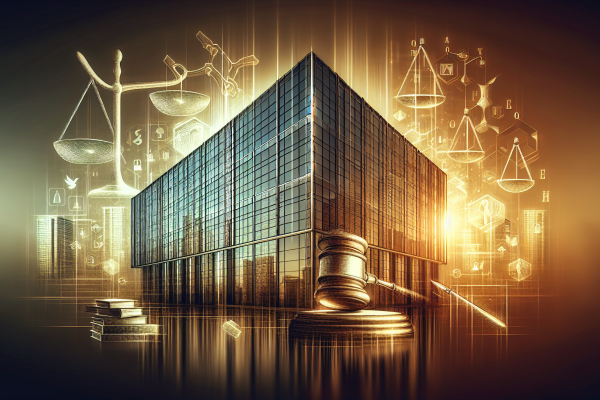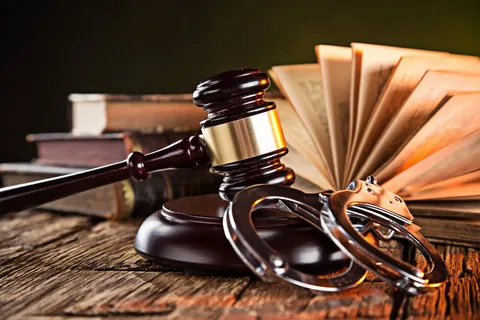Introduction
The criminal justice system is a complex and multifaceted entity that seeks to ensure justice is served while protecting the rights of both the accused and society at large. However, like any human endeavor, it is not immune to errors or misjudgments. When a person is convicted of a crime they believe they did not commit or if they feel that their rights were violated during the trial process, the role of appeals lawyers becomes crucial. In this article, we will delve into the world of appeals lawyers in criminal cases, exploring their roles, responsibilities, and the impact they have on the pursuit of justice.
Understanding the Appellate Process
Before we dive into the specifics of appeals lawyers criminal cases, it’s essential to understand the appellate process itself. The appellate process is the legal mechanism through which individuals convicted of a crime can seek a review of their convictions or sentences. Unlike trial court proceedings, which focus on establishing facts and determining guilt or innocence, appeals are centered on examining whether legal errors occurred during the trial process.
Grounds for Appeal
There are various grounds upon which a convicted person may file an appeal, including:
Legal Errors: Appeals lawyers often argue that errors in the legal process, such as misapplication of the law or incorrect jury instructions, affected the outcome of the trial.
Ineffective Assistance of Counsel: If the defendant believes that their defense attorney failed to provide competent legal representation, they may raise this as a ground for appeal.
New Evidence: If new and substantial evidence emerges that was not available during the original trial, it can be used to support an appeal.
Constitutional Violations: Allegations of constitutional violations, such as violations of the defendant’s rights under the Fourth, Fifth, Sixth, or Eighth Amendments, can also form the basis of an appeal.
Prosecutorial Misconduct: Appeals lawyers may argue that the prosecution engaged in misconduct during the trial, which unfairly influenced the jury or tainted the proceedings.
The Role of Appeals Lawyers
Appeals lawyers, also known as appellate attorneys or appellate advocates, specialize in navigating the complex world of appellate law. Their primary role is to represent the appellant (the person filing the appeal) in appellate court and advocate for the reversal of a conviction or a modification of the sentence. Here are the key responsibilities and roles played by appeals lawyers in criminal cases:
Review of Trial Records: Appeals lawyers meticulously review the trial records, including transcripts, evidence, and court documents, to identify potential errors or issues that can be raised on appeal.
Legal Research and Analysis: They conduct in-depth legal research to identify applicable laws, precedents, and relevant legal arguments that can be used to support the appeal.
Drafting Appellate Briefs: Appeals lawyers draft detailed appellate briefs that present the legal arguments, case law, and evidence in a clear and persuasive manner. These briefs are submitted to the appellate court for review.
Oral Arguments: In some cases, appeals lawyers are granted the opportunity to present oral arguments before the appellate court judges. This is a crucial stage where they can further clarify their legal positions and respond to any questions from the judges.
Advocacy for Client’s Rights: Appeals lawyers are fierce advocates for their clients’ rights. They ensure that the defendant’s constitutional and procedural rights were upheld during the trial and raise any violations as grounds for appeal.
Negotiations and Settlements: In some instances, appeals lawyers may negotiate with the prosecution or work towards a plea bargain that results in a reduced sentence or the withdrawal of certain charges.
Post-Conviction Remedies: Appeals lawyers can also assist clients in seeking post-conviction remedies, such as habeas corpus petitions, when all other avenues of appeal have been exhausted.
Challenges Faced by Appeals Lawyers
Appeals lawyers face unique challenges in their pursuit of justice for their clients:
High Standards of Review: Appellate courts generally give deference to the decisions made by trial courts, making it challenging to convince them to overturn convictions or sentences.
Limited Scope of Review: Appellate courts typically focus on legal errors rather than reevaluating the facts of the case. Proving that a legal error had a significant impact on the outcome can be difficult.
Resource Intensive: Appeals can be resource-intensive and time-consuming, requiring extensive legal research, writing, and court appearances.
Emotional Toll: Handling appeals involving wrongful convictions or serious legal errors can be emotionally draining for appeals lawyers, as they often deal with clients facing lengthy prison sentences.
Impact on the Criminal Justice System
The work of appeals lawyers plays a vital role in upholding the integrity of the criminal justice system. By scrutinizing the legal processes and ensuring that the accused receive a fair trial, appeals lawyers contribute to the following:
Correcting Errors: Appeals lawyers help correct errors and injustices that may have occurred during the trial, ensuring that innocent individuals are not wrongfully convicted.
Preserving Constitutional Rights: Their advocacy ensures that constitutional rights, such as the right to a fair trial and protection against self-incrimination, are upheld in the legal system.
Accountability: Appeals lawyers hold the legal system accountable for any misconduct or negligence that may have occurred during the trial, discouraging future violations.
Legal Precedents: Successful appeals can establish legal precedents that clarify and enhance the protection of individual rights, benefiting future cases.
Conclusion
Appeals lawyers in criminal cases are essential players in the pursuit of justice. Their dedication to reviewing trial records, identifying errors, and advocating for their clients’ rights is crucial in upholding the principles of fairness and justice within the criminal justice system. While their work is challenging, it serves as a safeguard against wrongful convictions and legal injustices, ultimately ensuring that the system remains fair, transparent, and accountable.





